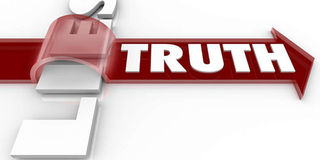Did archbishop plagiarise reader’s proposal on how to win graft war?

Anyone with a complaint against the editorial doings of the NMG has a right to complain. But all claims should be based on facts. ILLUSTRATION | NATION MEDIA GROUP
What you need to know:
- The claim of plagiarism is outlandish. Not because of the parties involved but because there is no iota of evidence of plagiarism.
A grant seeker has complained bitterly that NMG has aided and abetted in plagiarising his work.
He wrote a proposal for energising the war against corruption. The proposal was stolen, he claims, and used as a speech to launch a similar initiative by none other than the archbishop of a mainstream church.
The Daily Nation published the speech as a news story without crediting the grant seeker as the originator of the idea.
He names as accomplices the Ethics and Anti-Corruption Commission, Directorate of Criminal Investigations and Office of the Public Prosecutions. He had submitted his proposal to the three agencies for possible funding.
The claim of plagiarism is outlandish. Not because of the parties involved but because there is no iota of evidence of plagiarism.
If this were a court of law, I would dismiss the case as “frivolous, vexatious, and a waste of court's time”.
Anyone with a complaint against the editorial doings of the NMG has a right to complain. But all claims should be based on facts. They must have merit.
JUSTIFICATION
His main beef seems to be that his grant proposal has been bypassed. He sent his proposal to the three agencies on February 4, 2019, but to date they have not responded.
He now thinks it was from their offices that his paper was "cannibalised, dismantled and its parts and components harvested and implanted into the fake replica” published in the Daily Nation.
I’m going public with this to remind my readers that there must be a reasonable basis for complaining against NMG reportage.
In this case, the Daily Nation is accused of publishing plagiarised information. What is plagiarism?
Blacks Law Dictionary defines plagiarism as: “The act or an instance of copying or stealing another's words or ideas and attributing them as one’s own.”
TYPES OF PLAGIARISM
There are four main types of plagiarism. There is direct plagiarism -- the word-for-word use of someone else’s work without attribution or quotation marks.
There is paraphrasing plagiarism -- paraphrasing someone else’s writing without acknowledging the source.
There is mosaic or patch writing -- the use of someone else’s writing with some minor changes in the words and sentences and presenting it as your own writing.
Then there is ideas plagiarism -- stealing the thoughts of another person and passing them off as your own.
I reviewed the concept paper against the Nation story. No plagiarism of any type is present.





